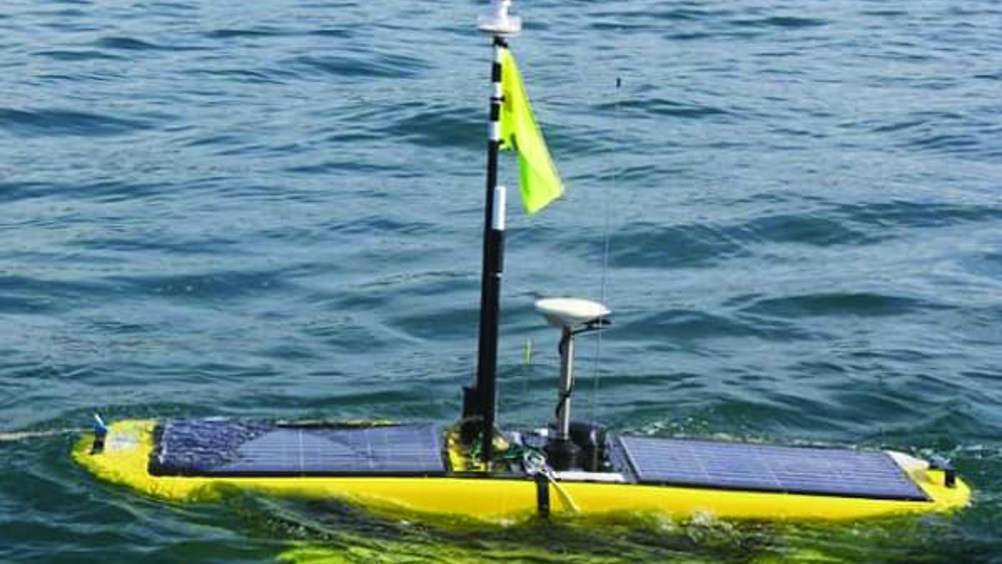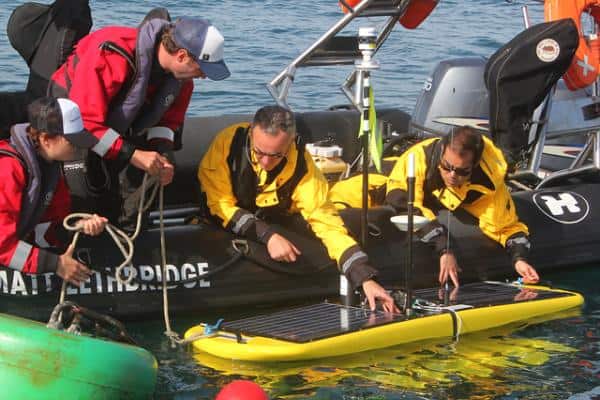Robots set sail on scientific mission
A fleet of seven aquatic robots has set sail off southwest England to collect scientific data about ocean processes and marine life.

The vehicles are aiming to travel up to 300 miles over the next 20 days in what has been described as the most ambitious project of its kind in Europe.
Co-ordinated by the National Oceanography Centre (NOC), the exercise includes battery-powered submarine gliders and surface vehicles powered by wind, wave and solar energy. All of the vehicles are unmanned and communication with the fleet will take place via satellite.
According to NOC, the vehicles will cross a series of physical boundaries in the ocean during their three-week journey. These boundaries – or fronts - separate water masses of different properties with targeted fronts off southwest UK providing suitable conditions for plankton growth, which in turn can attract large numbers of fish, seabirds, dolphins and basking sharks.

The deployed vehicles are carrying a range of instruments for observing these animals. As well as measuring the temperature of the water and the weather conditions at the ocean surface, they can detect the density of plankton in the water; listen for clicks and whistles of dolphins and porpoises, and image seabirds using surface cameras. These data will help scientists map the distribution of the fronts and their associated fauna.
Register now to continue reading
Thanks for visiting The Engineer. You’ve now reached your monthly limit of news stories. Register for free to unlock unlimited access to all of our news coverage, as well as premium content including opinion, in-depth features and special reports.
Benefits of registering
-
In-depth insights and coverage of key emerging trends
-
Unrestricted access to special reports throughout the year
-
Daily technology news delivered straight to your inbox










UK Enters ‘Golden Age of Nuclear’
The delay (nearly 8 years) in getting approval for the Rolls-Royce SMR is most worrying. Signifies a torpid and expensive system that is quite onerous...